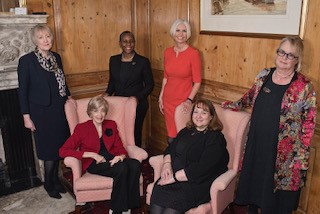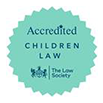People settled in the UK that wish to be afforded the rights offered to nationals may want to apply for UK citizenship. A successful application will result in an individual being granted UK citizenship and having the right to hold a British passport. It can be a daunting process and so here we look at how to complete the application and what to expect during the procedure.
The impact of Brexit is undoubtedly a concern for many people residing in the UK that are not citizens, and so here we also consider this issue in relation to EU citizens and EEA (European Economic Area) nationals.
Check your eligibility for British citizenship
First and foremost, you must ensure that you are eligible before applying for British citizenship with UK Visas and Immigration (UKVI). Otherwise, your application may be delayed or refused because you do not meet the necessary statutory legal requirements.
An EEA national will need to meet various requirements to apply for British citizenship. The applicant must:
- Meet the resident requirement
- Intend to continue residing in the UK
- Satisfy the knowledge of life and language in the UK
- Be of good character and sound mind- the person's previous convictions will be taken into account (this includes motoring offences), as will their financial situation
- Be over the age of 18
Meeting the resident requirement
Those married/ in a civil relationship with a British citizen with either indefinite leave to remain; settled status under the new EU Settlement Scheme or a permanent residence document confirming permanent residence status. The applicant must have lived in the UK for three years and cannot have been absent from the UK for more than 270 days in the last three years and no more than 90 days in the last 12 months.
Those with indefinite leave to remain under the new EU Settlement Scheme (ILR) (settled status) can apply 12 months after having lived in the UK for five years. The UK citizenship timeline for this process is six years, covering five years of residence and one-year's settled status.
EU citizens and their family members gain permanent residence status automatically five years after living in the UK. During this time, they must not have been absent for more than 450 days and no more than 90 days in the final twelve months. Again, the UK citizenship timeline for this process is six years, covering five years of residence and one-year of permanent residence status. However, see below on how this route will not be available at the end of the Brexit transition period.
Knowledge of life and language requirement
Part of the requirements for UK citizenship is the knowledge of language and life in the UK (KoLL) requirement. This is a commitment to respect the laws, rules, values and traditions of the UK and to show sufficient "knowledge of the English Language and about life in the UK", which is satisfied by the applicant having:
- Passed the Life in the UK test (UK citizenship test) (there are a few exemptions). This is a 45-minute computer-based test of 24 multiple-choice questions. The results are given on the day and an applicant can repeat the test until they have passed.
- Met the Knowledge of English language requirement: either a qualification at B1 level or above of the Common European Framework of Reference for Language (CEFR); a degree taught or researched in English; or is a national of a majority English-speaking country.
The application process
The current cost of an application is £1330. The application process is done online, after which an appointment needs to be made at a UK Visa and Citizenship Application Services Point (UKVCAS) to provide biometric information, such as fingerprints and photographs (there is a charge of £19.20 for this). The necessary documentation can also be scanned at this UKVCAS appointment. Otherwise, it can be uploaded into the online service.
How long does it take for a decision to be made?
The applicant should receive the decision within six months of applying, although sometimes it can be longer.
What happens if an application is refused? Is there a right to appeal?
It must be noted that a UK citizenship application can be refused. Although there is no right of appeal, the person can request that the decision is reviewed and if this is unsuccessful,l then the decision can be challenged by judicial review.
This is a complicated area of law that requires expert advice from specialist immigration lawyers. Our team can guide and assist you throughout the whole process and advise you on the best course of action.
What is a UK citizenship ceremony?
People over the age of 18 that are successful with their UK citizenship application must attend a UK citizenship ceremony. This must be booked within three months of receiving an invitation from the Home Office.
The ceremonies are organised by local councils as group ceremonies (costing £80), though it is possible to arrange a private ceremony (these will cost more). The invitation received from the Home Office must be taken to the ceremony. Generally, people can bring two guests along to the ceremony.
During the ceremony, the person must make an oath of allegiance (or affirmation if a non-religious confirmation is preferred) and a pledge, which is a promise to respect the UK's rights, freedoms and laws. The person is then awarded a certificate of British citizenship and a welcome pack. The certificate means that the person can then apply for a UK passport.
UK citizenship for children
Children cannot be included in their parent's application- a separate application must be completed for each child. A child born outside of the UK or within the UK but before their parent was granted indefinite need to remain can have a UK citizenship application made on their behalf.
The cost is currently £1,012 per child, with an additional fee of £80 for the citizenship ceremony if the child turns 18 years old during the process. A child born in the UK and after the parent was granted indefinite leave to remain will automatically be a British Citizen and can apply for a UK passport.
The impact of Brexit on UK citizenship applications
Brexit has caused a great deal of stress and concern for EU Citizens and EEA nationals living and working in the UK. We are currently in a transition period that is running from the date we left (31 January 2020) until 31 December 2020. During this time, EU citizens can move freely in the UK as they did before.
What happens after the transition period is over?
Once the transition period is over, the scheme that has been set up is the new EU Settlement Scheme, which opened on the 21 January 2019. This will also apply to EEA and Swiss nationals. Those that have lived here for five years will be granted settled status and those with less than five years will be given pre-settled status. The deadline for making an application is 30 June 2021.
EU citizens married to UK citizens previously had the same rights of entry and residence in the UK as their spouse. Most gave little thought to the legal position underlying their residence in the UK. This changed with Brexit since now they need to go through a process to remain in the UK in the same way as EU citizens that are not married to a UK citizen.
Permanent residence in the UK
EU citizens can currently apply for permanent residence, which is automatic after five years' permanent residence in the UK and can be backdated. Although the right is automatic, since 12 November 2015, someone with permanent residence needed to apply for a permanent residence card or certificate before they could apply for British citizenship.
However, permanent residence documents will only be valid under 31 December 2020, since once the transition period ends the UK would no longer adhere to free movement under EU laws. EU citizens will, therefore, need to apply for settled status followed by a UK citizenship application.
Any EU citizens with "indefinite leave to remain/ stay in the UK" documentation or Irish citizens do not need to apply for settled status, though they can if they wish to.
Making an application to the EU Settlement Scheme
There is no cost for applications done through this scheme. If an application is refused before the 31 December 2020, then the person can make further applications until this date.
Applications made before 11 pm on 31 January 2020 have a right to an administrative review (unless the reason was on suitability grounds). Those applications made after this date have a statutory right of appeal on either the status being refused or the level of status (only pre-settled status being granted). Generally, the person can remain in the UK during the appeal.
Contact our Immigration Lawyers in London
Applying for UK citizenship can be a complex process, but we are here to help. Our specialist team have a wealth of experience dealing with such applications and other immigration matters. The team will guide you through your application, ensuring the best outcome possible for you and your family.
We pride ourselves in giving clear and reliable advice on all immigration matters and will tailor our guidance to your circumstances. Please get in touch via our online contact form or call us on 020 3972 9011 to see how we can help you.














